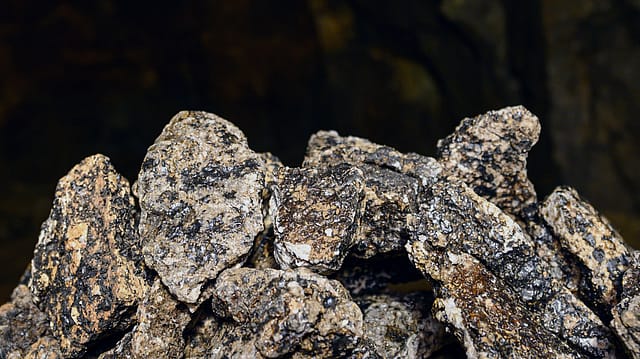Govt to auction strategic mineral blocks tomorrow
ADVERTISEMENT

The Union government will invite bids for 20 blocks of critical minerals including lithium, cobalt, titanium, and other rare earth elements spread across the country on November 29.
Union Minister of Coal, Mines and Parliamentary Affairs Pralhad Joshi will launch the first-ever auction of strategic minerals.
"This is a landmark initiative that will boost our economy, enhance national security and support our transition to a clean energy future," the Ministry of Mines says in a statement.
The unavailability of such minerals in India and the concentration of their extraction or processing in a few countries such as China have led to supply chain vulnerabilities. China tops in the processing of rare earth metals—with 58% of the world's lithium processed in China, along with 35% of the world's cobalt, and 40% of the world's copper used in the manufacturing of battery cells, according to data compiled by ICRA.
"Strategic minerals are in high demand and the same is usually met by imports. Critical minerals cater to the needs of sectors like renewable energy, defence, agriculture, pharmaceutical, high-tech electronics, telecommunications, transport, creation of gigafactories etc," the ministry says.
The future global economy will be underpinned by technologies that depend on minerals such as lithium, graphite, cobalt, titanium and rare earth elements (REE). India has committed to achieve 50% of cumulative electric power installed capacity from non-fossil sources by 2030. Such an ambitious plan for energy transition is set to drive the demand for electric cars, wind and solar energy projects and battery storage systems thereby increasing the demand for these critical minerals.
January 2026
Netflix, which has been in India for a decade, has successfully struck a balance between high-class premium content and pricing that attracts a range of customers. Find out how the U.S. streaming giant evolved in India, plus an exclusive interview with CEO Ted Sarandos. Also read about the Best Investments for 2026, and how rising growth and easing inflation will come in handy for finance minister Nirmala Sitharaman as she prepares Budget 2026.
The auction comes months after the Parliament amended the mining rules, paving the way for private companies to mine lithium, cobalt and nickel – the three critical raw materials required to manufacture battery cells. One of the major reforms is the removal of "lithium-bearing minerals" and five other atomic minerals from a prohibited list, thus opening the sector to private miners. Due to their inclusion in the list of atomic minerals, only state-run entities were allowed to mine and explore these minerals.
According to the Mines and Minerals (Development and Regulation) Amendment Bill, 2023, an exploration licence granted through auction will permit the licencee to undertake reconnaissance and prospecting operations for critical and deep-seated minerals. The blocks explored by the exploration licence holder would be auctioned for mining lease within the prescribed timeline, which will fetch better revenue to the state governments.
The amendment confers the power to grant mineral concession of these minerals to the central government so that it can prioritise the auction of these minerals looking at the requirements of the country. The revenue generated from these auctions shall accrue to state governments. Royalty rates of critical minerals have also been rationalised to encourage more participation in auctions. The government had specified royalty rates for Platinum Group of Metals (PGM) at 4%, Molybdenum at 7.5%, Glauconite and Potash at 2.5% in March 2022. On October 12, 2023 the government specified royalty rates for Lithium at 3%, Niobium at 3% and Rare Earth Elements at 1%.
Around 5.9 million tonnes (MT) of lithium reserves were discovered in the Reasi district of Jammu & Kashmir (J&K). The Geological Survey of India found the G3 category lithium in the state, which means more research and studies are required to reach the final 'confident G1 or G2' category of 'mineable reserves'.
